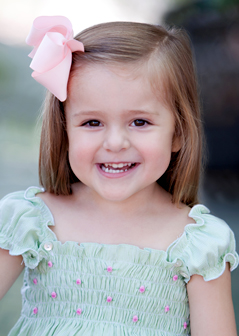About Pediatric Dentistry
What is a pediatric dentist? Why choose a pediatric dentist?
A pediatric dentist has an extra two to three years of specialized training after dental school, and is dedicated to the oral health of children from infancy through the teenage years. The very young, pre-teens, and teenagers all need different approaches in dealing with their behavior, guiding their dental growth and development, and helping them avoid future dental problems. A pediatric dentist is best qualified to meet these needs
How is a pediatric dentist different from other dentists?
Many general dentists identify their practices with the description of “Family Dentistry.” Most parents are often unaware that general dentistry does not require additional training and education beyond their four year graduation from dental school to treat children. Pediatric Dentistry, on the other hand, is recognized specialty which requires an additional two year residency after graduating dental school. Pediatric dentists are specially trained for the specific needs of children, especially dealing with anxiety that many children may have coming to the dentist
During training in the field of pediatric dentistry, your doctor gained extensive knowledge and experience in treating infants, children, and adolescents. Pediatric dentists enjoy working with children, and bring to each patient our expertise in childhood development and behavior. Because our office is geared toward young visitors, you'll find that our staff, as well as our office design, decorations, and activities all work together to provide an especially friendly and comfortable environment for children
The Importance of Baby Teeth
It is very important to maintain the health of the primary teeth. Neglected cavities can and frequently do lead to problems which affect developing permanent teeth. Primary teeth, or baby teeth are important for (1) proper chewing and eating, (2) providing space for the permanent teeth and guiding them into the correct position, and (3) permitting normal development of the jaw bones and muscles. Primary teeth also affect the development of speech and add to an attractive appearance. While the front fourteeth last until six to seven years of age, the back teeth (cuspids and molars) aren’t replaced until age ten to 13.




